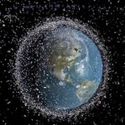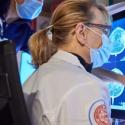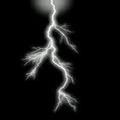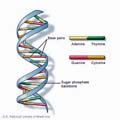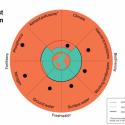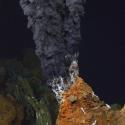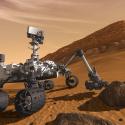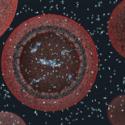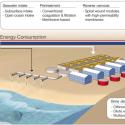Science Is Essential
Science touches so many aspects of modern life that it's hard to keep up. Through our programs and this website, Science for the Public provides up-to-date information about scientific innovations, discoveries, and issues that are shaping modern knowledge.
Coming Events
No events are scheduled for June
Recent Events
Space Debris Alert!: The Potential Impact on the Ozone Layer and Earth’s Climate
05/27/25 (rescheduled from April) Thousands of satellites orbit Earth. At the end of their missions, they drop into and burn up in the stratosphere, depositing ash that contains oxides and pollutants that are affecting both the ozone layer and the planet's climate. Atmospheric scientists are working to analyze the aerosols and their worrisome impact. Daniel Cziczo
The Brain-Computer-Interface Paradox
05-20-25 For individuals paralyzed by injury, stroke or ALS, brain-computer-interface (BCI) devices can enable movement and even speech. However, there are concerns: specifically, that such technology could be developed for mind control. Lukas Meier
Cancer Research: How It Works and Why It's Crucial Today
04/08/25 Numerous types of cancer are increasing today and scientists are trying to identify the causes. That's why cancer research is one of the most important concerns of modern science. We learn how the research is done and also why federal funding for this work is essential. Gerald Denis
Resistance to New Ideas
Many of the most important advances in scientific understanding were initially rejected or ignored.
Life: Defining Life
The fine line between animate and inanimate, and between quasi-life and life. ....
Featured Items
The Battle for the Future of Food
06/11/24 WGBH Forum Network webinar. Industrial agriculture (“Big Ag”) is a major contributor to global warming, environmental destruction, and disruption of good farming traditions. There is a better way to feed the world without destroying the planet. Tim Wise
Addressing the Threat to Earth System Boundaries
09/12/23 The breaching of most of the Earth system boundaries (ESBs) is destroying the planet and the crisis must be addressed immediately. Solutions must include justice for those who suffer displacement, health and economic impacts of the crisis. Diana Liverman
Heads Up! Surprising Stats
Science for the Public is committed to improving public knowledge of science and public appreciation for the contributions of science to social progress.

The Formation of Stars and Planets
09/15/15 How stars and their planetary systems form, and what the New Horizons mission to Pluto will reveal about the "fossil record" of our own solar system. Scott J. Kenyon
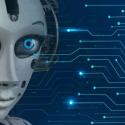
Why AI Can Seem Sentient
05/10/23 Although technologies such as ChatBots are not conscious, their sophisticated communications can seem human enough to fool people. That raises concerns. Nir Eisikovits
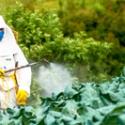
The Menace of Agrochemicals
10/18/21 A prominent researcher-author-public advocate discusses the environmental and health issues of agrochemicals, especially glyphosate (Roundup). Sheldon Krimsky
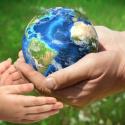
The Global Green New Deal
09-03-24 The book Climate Crisis and the Global Green New Deal by Noam Chomsky and Robert Pollin is one of the most important books on our urgent global issue. Robert Pollin discusses the economic factors underlying the climate crisis and the strategy needed to shift to a Global Green New Deal which will restore the planet and civilization. Robert Pollin
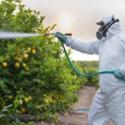
The Struggle to Ban Pesticides That Disrupt Brain Development
07/05/22 Scientists struggled for decades to get an EPA ban on Chlorpyrifos, a widely used pesticide known to impair brain development. As autism, ADHD and other developmental conditions increased, vested interests blocked efforts to regulate Chlorpyrifos and other agricultural toxins. Philip Landrigan
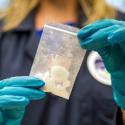
The Opioid Crisis: Origin and Implications
05/30/23 The Centers for Disease Control and Prevention (CDC) has aptly described the opioid crisis as the “worst drug overdose epidemic in [US] history.” How did that happen? Andrew Kolodny, M.D.

Designing Sustainable Urban Development
11/25/19 How the world-class Sustainable Design Lab at MIT combines architecture, engineering, physics --and creative genius-- to design the optimal urban environment.
Christoph Reinhart
Today's Featured Contributors
Featured Author

Andy Knoll, Ph.D.
An acclaimed scientist and award-winning author, whose books on the relationship between geology, environment and evolution are both brilliant and accessible.
Featured Guest

John Ebel, Ph.D.
A prominent seismologist explains how and where earthquakes and tsunamis are generated
As a world society, it seems clear that we have arrived at a point in our history when there must be a major increase in the capability of ordinary people to cope with the scientific and technological culture that is shaping their lives and the lives of their children.
—Leon Lederman, Nobel Laureate in physics

